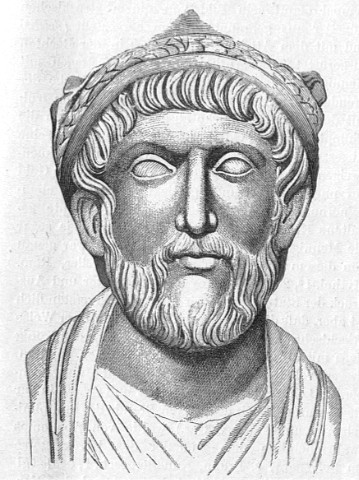Julianus nejznámější citáty
„Žádná divoká bestie není člověku tak nebezpečná, jako jsou křesťané sami sobě navzájem.“
Zdroj: iwise.com - quotes by Julian (Emperor) http://www.iwise.com/Julian_%28Emperor%29
Nicméně je-li člověk žárlivý a závistivý, je podle vás provinilcem, kdežto je-li bůh nazýván žárlivým, shledáváte to za božskou kvalitu? A přec jak lze smysluplně hovořit o bohu tak lživě v tak zřejmé věci? Protože je-li vskutku tak žárlivý, tak všichni ostatní bohové jsou uctíváni proti jeho vůli, a všechny ostatní národy je uctívají proti jeho vůli. Jak je tedy možné, že jim v tom nijak nebrání, když je tak žárlivý, že si nepřeje aby jiní bohové byli uctívání, jen on sám? Je to snad proto, že není v jeho moci tomu zabránit, nebo je to snad proto, že tomu od začátku tomu bránit ani nechtěl? To první, ve smyslu že nemůže, je bezbožné říci, to druhé je pak v souladu s tím, co sami činíme. Ponechme stranou tento nesmysl a nesoustřeďme na sebe takové rouhání.
Protože pakliže je vůlí boha, aby nebyli jiní uctíváni, proč vy uctíváte tohoto jeho nelegitimního syna, kterého on sám neuznal ani neprohlásil za svého? Nicméně vy, ačkoliv nevím proč, jste mu podstrčili podvrženého syna.
Zdroj: Against the Galileans: remains of the 3 books, excerpted from Cyril of Alexandria, Contra Julianum http://www.tertullian.org/fathers/julian_apostate_galileans_1_text.htm. Transl. C.W. King, 1888.
Julianus: Citáty anglicky
Upon the Sovereign Sun (362)
Upon the Sovereign Sun (362)
Upon The Mother Of The Gods (c. 362-363)
Now this is very different in the case of men, for theirs is a double nature mixed up in one, that of soul and body; the former divine, the latter full of darkness and obscurity: hence naturally arise warfare and discord between the two.
Upon the Sovereign Sun (362)
Fragmentum Epistulae 288a-305d
General sources
From whom then does it receive its eternity and imperishability, if not from him who holds all things together within defined limits, for it is impossible that the nature of bodies (material) should be without a limit, inasmuch as they cannot dispense with a Final Cause, nor exist through themselves.
Upon the Sovereign Sun (362)
This opinion is consistent with sound reason: if we consider the light that is without body, we shall perceive that of such light the source cannot be a body, but rather the simple action of a mind, which spreads itself by means of illumination as far as its proper seat; to which the middle region of the heavens is contiguous, from which place it shines forth with all its vigour and fills the heavenly orbs, illuminating at the same time the whole universe with its divine and pure radiance.
Upon the Sovereign Sun (362)
